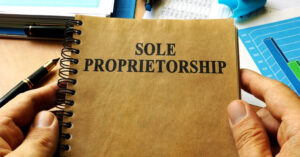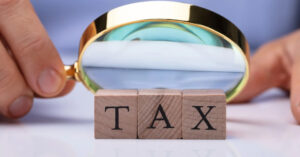The taxation of sole proprietorships is relatively straightforward; all income and expenses are placed on Schedule C of the taxpayer’s Federal Form 1040, with allowances made for returns (deducted from gross revenue). There are, however, a few issues to be aware of.
The first issue is whether you are operating under your own name or a ‘d/b/a’ (‘doing business as’). The IRS also requires an activity code and either an EIN or the Social Security Number of the sole proprietor for identification purposes. An EIN is required if the business is going to;
hire employees
have a Keogh or Solo 401(k) retirement plan;
buy or inherit an existing business that you operate as a sole proprietorship;
incorporate or form a partnership or limited liability company;
file for bankruptcy.
The second issue to be aware of is Self Employment tax. You must pay self-employment tax and file Schedule SE (Form 1040) if either of the following applies;
Your net earnings from self-employment (excluding church employee income) were $400 or more;
You had church employee income of $108.28 or more;
A Sole Proprietor must pay SE tax on the net operating income earned (for calculating SE tax, please see section on Calculating Self Employment Tax).
The third issue involves whether or not a loss from a Schedule C can offset other income. The answer depends upon if the amount of the loss was ‘at risk’ and what type of income you earned and what type of income is being offset (please see section on ‘At Risk Limitations’ & ‘Passive Loss Limitations’) These rules determine whether or not losses incurred in your business can offset income earned.
The last issue involves whether your business can use the cash basis method of accounting or whether it is mandated by IRS rules to use the accrual method. Generally speaking, for Sole Proprietorships;
The cash method is always allowed if the entity meets the $1 million average revenue test;
The cash method is allowed if the company has more than $1 million in sales and meets the service business test;
The accrual method is required if the entity fails both the $1 million average revenue and the material income-producing factor tests or if the entity is a tax shelter as defined under the IRC.
As IRS rules are in a constant state of flux, always check with a licensed CPA or tax attorney regarding rules applicable to your specific situation.




